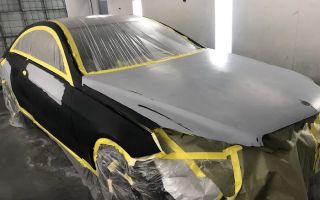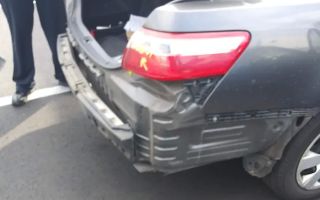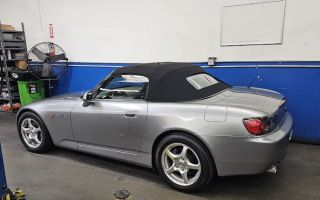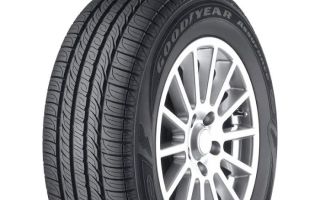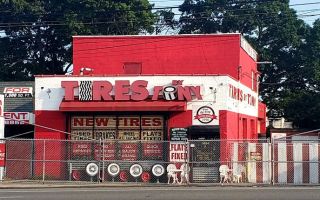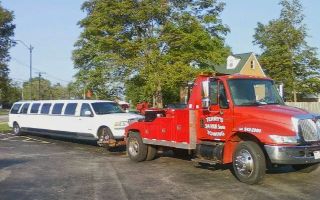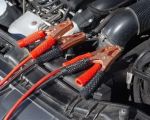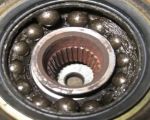- Understanding why your car’s interior fan makes noise
- Common causes of a noisy car fan
- Step-by-step guide to troubleshooting
- When the noise indicates a serious problem
- Real-life driver story: dealing with a loud cabin fan
- Preventive maintenance tips for a quiet fan
- Professional help and recommendations from Rescue & Towing
Understanding why your car’s interior fan makes noise
It’s a crisp morning, and you switch on your car’s heater—only to be greeted by an unexpected buzzing, rattling, or squealing sound. A noisy interior fan can be more than just an annoyance; it’s often a sign that something inside your car’s ventilation system needs attention. Knowing what to do if your car’s interior fan makes noise can save you from larger repair bills and keep your cabin comfortable year-round.
The fan, also known as the blower motor, circulates air through the vehicle’s heating and cooling systems. Over time, dust, debris, or worn-out components can interfere with its operation, leading to unusual sounds. Whether the noise is faint or loud, diagnosing it early can prevent more significant damage to the air system.

Pick Your Part - Help Yourself
1232 Blinn Ave, Wilmington, CA 90744, USA
Common causes of a noisy car fan
Car fans can make a variety of sounds—each pointing to different issues. Here are the most frequent causes drivers encounter:

Pick Your Part - Greer
13054 E Wade Hampton Blvd, Greer, SC 29651, USA
1. Debris in the fan housing
Leaves, twigs, or even small plastic wrappers can slip through the air intake vents and get trapped inside the blower motor. When this happens, the fan blades hit the debris, producing a repetitive flapping or ticking sound. This is particularly common during autumn or after parking under trees.
2. Worn-out bearings
If you hear a grinding or squealing sound, the bearings inside the motor might be wearing down. As they lose lubrication, friction increases, leading to that high-pitched noise many drivers describe as “a bird trapped in the dashboard.”
3. Loose or unbalanced fan blades
Over time, the fan blades can become misaligned or loose. This creates a rhythmic vibration or wobble noise, especially when changing fan speeds. Ignoring this issue could eventually damage the motor shaft.
4. Electrical issues or faulty resistors
Sometimes, the noise isn’t mechanical but electrical. Faulty resistors or wiring connections can cause the fan to cycle irregularly, producing a clicking or pulsing sound. This problem often coincides with the fan not operating at all speed settings.
Step-by-step guide to troubleshooting
Before rushing to a mechanic, there are a few checks you can perform safely on your own. Here’s how to identify and fix the source of the noise:
Step 1: Check the air intake vents
Look under the windshield and at the cowl area where outside air enters your system. Clear away any visible debris, such as leaves or pine needles. Sometimes, a quick cleaning can resolve the problem instantly.
Step 2: Adjust the fan speed
Change the fan speed from low to high. If the noise changes in rhythm or intensity, the issue likely involves the motor bearings or the fan blades rather than electrical components.
Step 3: Inspect the cabin air filter
A clogged cabin air filter can restrict airflow and make the fan work harder, producing whirring or humming sounds. Replacing the filter regularly can improve both performance and air quality.
Step 4: Listen for electrical buzzing
If you notice a faint humming or clicking when the fan turns on, it may be an issue with the blower motor resistor or wiring. This should be inspected by a qualified technician to avoid potential electrical hazards.
Step 5: Access the blower motor (for experienced DIYers)
If you’re comfortable with car maintenance, you can remove the glove compartment to access the blower motor. Check for debris inside the housing, clean the blades, and ensure the motor spins freely. Use compressed air to clear out dust and contaminants.
When the noise indicates a serious problem
Some sounds shouldn’t be ignored. A persistent squealing or burning smell could mean the motor is failing. Grinding noises, especially when accompanied by weak airflow, often indicate that internal components are damaged beyond repair. Continuing to use the fan in this condition could cause a short circuit or blower motor failure.
In such cases, replacing the entire blower assembly might be the safest and most cost-effective option. Always consult a professional to ensure the correct replacement part is installed and properly calibrated.
Real-life driver story: dealing with a loud cabin fan
Last winter, Amy, a long-distance commuter from Colorado, noticed a rattling noise every time she turned on her car’s heater. Initially, she ignored it—until the noise became so loud she could barely hear her radio. When she finally visited her mechanic, they discovered a small piece of plastic lodged in the fan assembly. After a simple cleaning, the fan was quiet again. “I couldn’t believe something so tiny could make so much noise,” she laughed. Her experience reminds us that small problems, when ignored, often become big annoyances later.
Preventive maintenance tips for a quiet fan
Keeping your car’s air system clean and well-maintained can prevent most noise issues. Follow these simple habits to extend your fan’s lifespan:
- Replace the cabin air filter every 12,000–15,000 miles or annually.
- Keep your car’s intake vents clear of leaves and debris.
- Run the fan occasionally during off-seasons to keep internal components lubricated.
- Schedule regular inspections, especially before extreme seasons when heating or cooling is used most often.
Professional help and recommendations from Rescue & Towing
At Rescue & Towing, we know that strange noises can turn a comfortable drive into a stressful experience. Our experienced technicians specialize in diagnosing fan and HVAC issues quickly and accurately. Whether it’s debris removal, motor replacement, or electrical repair, our team ensures your car’s interior fan runs smoothly and quietly. If you’re unsure about the cause of your fan noise, visit Rescue & Towing for trusted service and reliable automotive advice.
By addressing the problem early, you’ll not only restore peace and quiet to your cabin but also prevent costly damage to your car’s electrical and ventilation systems.

